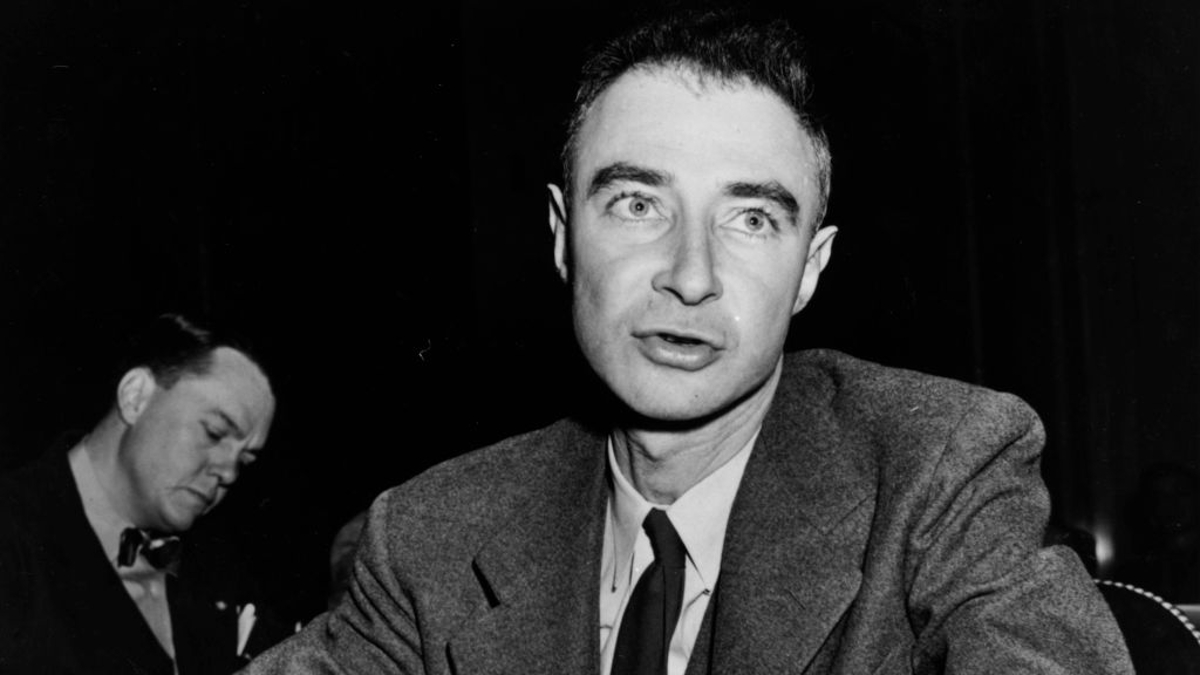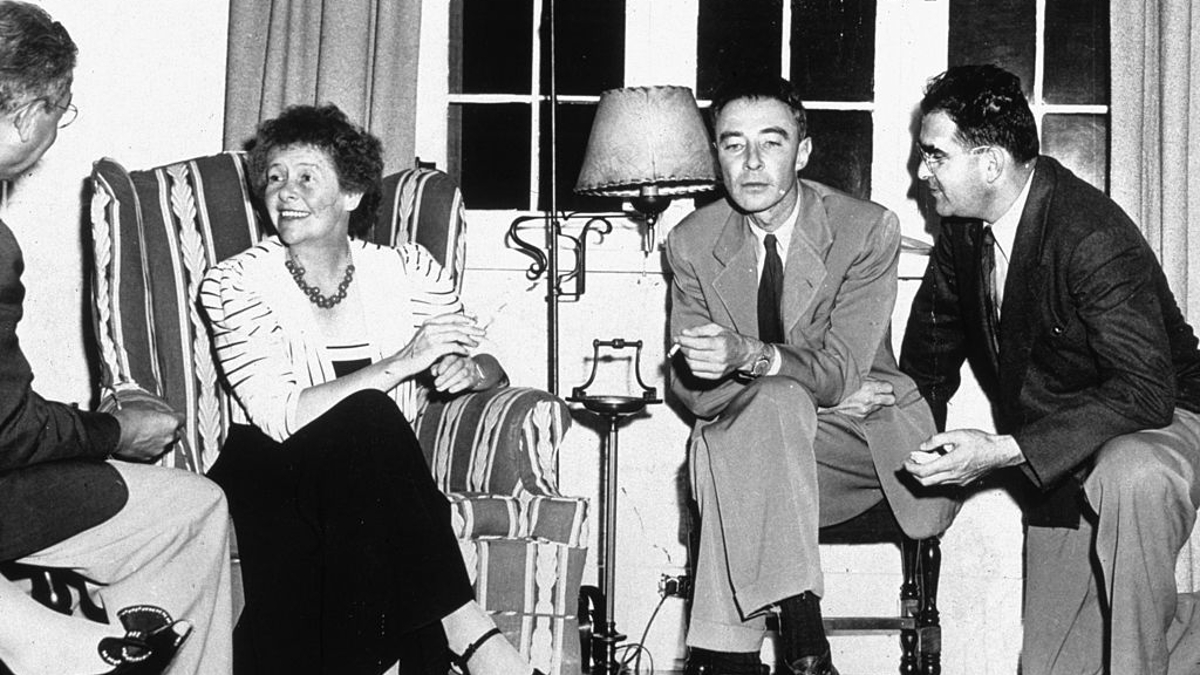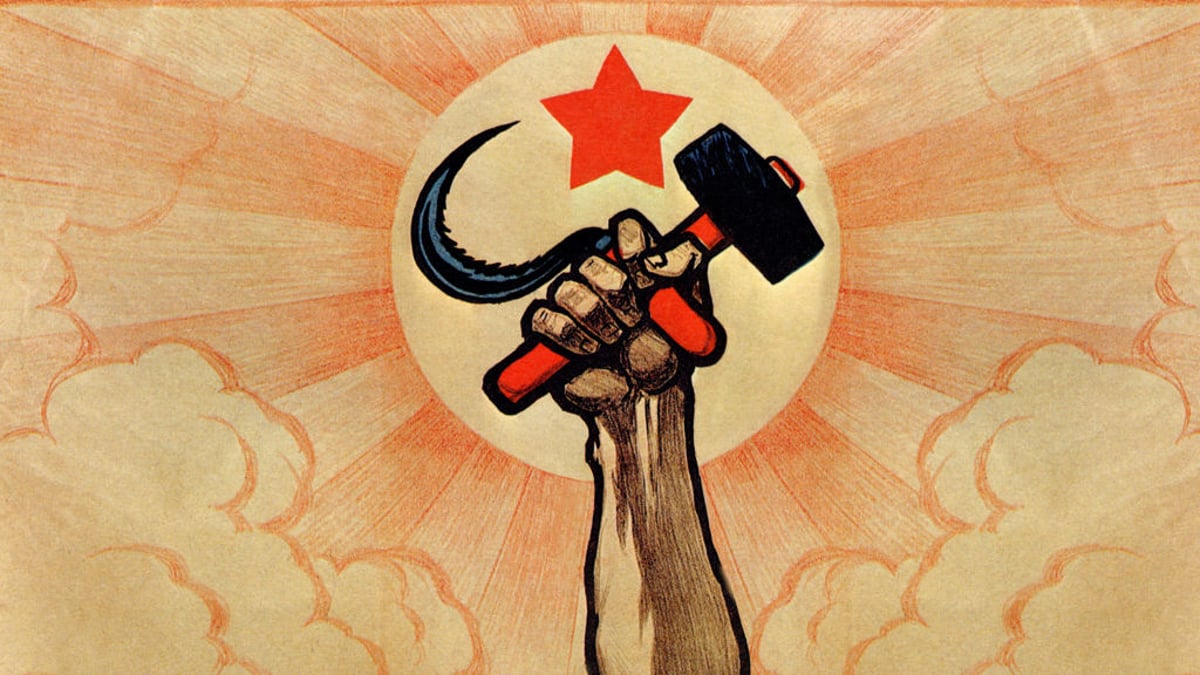With the upcoming release of Christopher Nolan’s epic biopic Oppenheimer, there’s been plenty of renewed interest in the man who is widely considered to be the father of the atomic bomb. The physicist was a truly impressive and interesting man, and wasn’t solely a scientific genius, but also well-versed in linguistics, philosophy, and history, while also being politically-minded.
One thing that many people have forgotten about the famous scientist was that, like many Americans, he was hounded for alleged communist beliefs during the repressive and dangerous post-war years, when the American government went even more insane than they usually are about threats to wealth accumulation by a few capitalists. Much like Martin Luther King, Ernest Hemmingway, and many people from the States who actually achieved something of real social value, the FBI were keeping an eye on Oppenheimer both before and after the war, even as he harnessed the awesome power of the bomb to end the conflict in America’s favor. Also, like most threats that the American government has concocted in its relatively short time as an entity, there wasn’t that much compelling evidence that Oppenheimer had ever been a member of the communist party, and accusations of his political beliefs seem to have been driven by the hysteria of the conservative men in power like J. Edgar Hoover, rather than by any factual basis. With that said, the Manhattan Project leader did associate with plenty of left-wing groups, especially in pre-war days.
If you’ve been reading up on your history before Nolan’s star-studded film comes out and have been wondering about the physicist’s political opinions, read ahead to find out if Oppenheimer was a communist.
What did Oppenheimer say about his political beliefs?

Throughout the ’20s, Oppenheimer regarded himself as apolitical. Having grown up in a wealthy New York home, he’d been entirely focused on his science, and by his own admission didn’t read the news. He even claims to have only heard about the 1929 stock market crash months after it happened. However, this appeared to change in the mid-’30s, with the shift in attitudes driven by the right-wing Nazi party’s growth in Germany. The physicist claims he cast his first-ever vote in the 1936 U.S. Presidential election between Roosevelt and Landon. He was also known to have donated money to support Jewish scientists who were fleeing the Third Reich.
Throughout that tumultus decade which ended with the start of WW2, Oppenheimer is alleged to have given money to other social causes that were mildly left-wing, although in the feverish hysteria of the U.S political scene these organizations that were promoting social justice were considered communist by many (a silly notion that we would almost certainly never see in today’s political climate). One such activity that was used as proof of his communism was the fact he hosted fundraisers for the Republican, anti-fascist movement in Spain (in the actual sense, not the regressive American political party).
One disputed claim comes from Oppenheimer’s security questionnaire from joining the Manhattan Project. It was alleged that he wrote he’d been a member of “every Communist Front organization” on the West coast, but the scientist later claimed that was either a lie, or had been a joke by him. In a later House of Un-American Activities Committee meeting he did admit that several of his former students and colleagues had been communist, although reiterated he’d never been a member of the party or any affiliated organization.
In later security hearings which took place during the very silly era of McCarthyism, Oppenheimer confirmed he’d never been a member of the Communist Party, but did call himself a “fellow traveller,” which is a phrase that originated in the U.S.S.R. and meant somebody sympathetic to a cause without actually joining it. He also stated in those same hearings that he was “associated” with the communist movement, and that he’d once been subscribed to the now-defunct communist newspaper People’s World.
What did the U.S Government say about Oppenheimer’s political beliefs?

Many factions of the U.S government were convinced that Oppenheimer was a dangerous communist, although most of their evidence was circumstantial, or obtained by dubious means that cast doubt on the veracity of their claims. Most of this hysteria was driven, as always, by the FBI under Hoover.
One of the claims was that Oppenheimer was a member of a secret unit of the Communist Party masquerading as a university discussion group. This claim was initially made by the physicist’s former colleague, the translator and writer Haakon Chevalier, although remains debated.
The FBI also claimed that Oppenheimer’s many associations with communists meant that he was certainly a member of the party. His wife and brother were members, as were many of his university colleagues throughout the ’20s and ’30s. There was lots of real evidence that Oppenheimer had close relationships with various committed socialists and communists, although no smoking gun could ever be found that confirmed he’d ever been a member. Additionally, some of the associations were a stretch, to say the least. For example, the FBI believed Oppenheimer’s relationship to the ACLU made him a communist (as there’s nothing more communist than civil liberties being granted to poor folks and minorities, of course).
As a result of this, the FBI did their classic FBI thing and illegally invaded Oppenheimer’s privacy by wiretapping his phone. All of this culminated in Oppenheimer losing his security clearance in December 1953, pending security hearings which were to be held in the Spring of 1954, where the matter of Oppenheimer’s allegiances would be debated, and a decision made about whether or not he should be given his clearance back.
What were the Oppenheimer Security Hearings?

The Oppenheimer Security Hearings took place across April and May of 1954, and were driven by the scientist refusing to resign after his security clearance was revoked. He requested a hearing, as was his right, and as a result was forced to answer questions about his past associations with communists. All in all, he went through 27 hours of questioning.
One unrelated issue that was brought up was Oppenheimer’s opposition to the H-Bomb. Although it seems clear why a man who’d seen the awesome power for the atomic bomb up close might be a bit cautious about creating an even greater weapon, the war-hungry, destructive forces that made up the U.S. government saw this instead as proof he was a communist, as with their convoluted logic it meant he was fine with the Soviets developing the bomb first.
Various others were also questioned about Oppenheimer’s past and beliefs, with many in the scientific community standing up for his reputation, while other government agents gave evidence against him. In the end, his clearance was revoked by a 2-1 vote. As a result, he was forced to cut back his academic commitments, and his great mind was reduced to giving the occasional lecture.
Was Oppenheimer a communist?

The short answer is – technically no, J. Robert Oppenheimer was not a communist, as there was zero evidence ever recovered that he’d been a member of the communist party. Whether or not he had sympathies with the communist movement is a little more nuanced, and depends on what you view communism to be.
If you’re a person who sees communism as any social improvement or collective action aimed at engendering greater equality, then Oppenheimer was certainly sympathetic to communist beliefs. He even described himself as such. However, if you see communism as statist (as practiced in the U.S.S.R. and China), or the preserve of old professors with long beards discussing theory, then it’s more fair to say the scientist wasn’t.
However, in the crazy, pseudo-Orwellian world of the States in the McCarthy era, thinking it was a bad thing that society left many people behind made you a full-blooded red, so in that sense, it made lebelling the man who’d stopped the war a communist was perfectly logical. People less emotional than powerful, conservative Americans in the fifties would probably disagree, though.










Published: Jul 19, 2023 03:12 pm